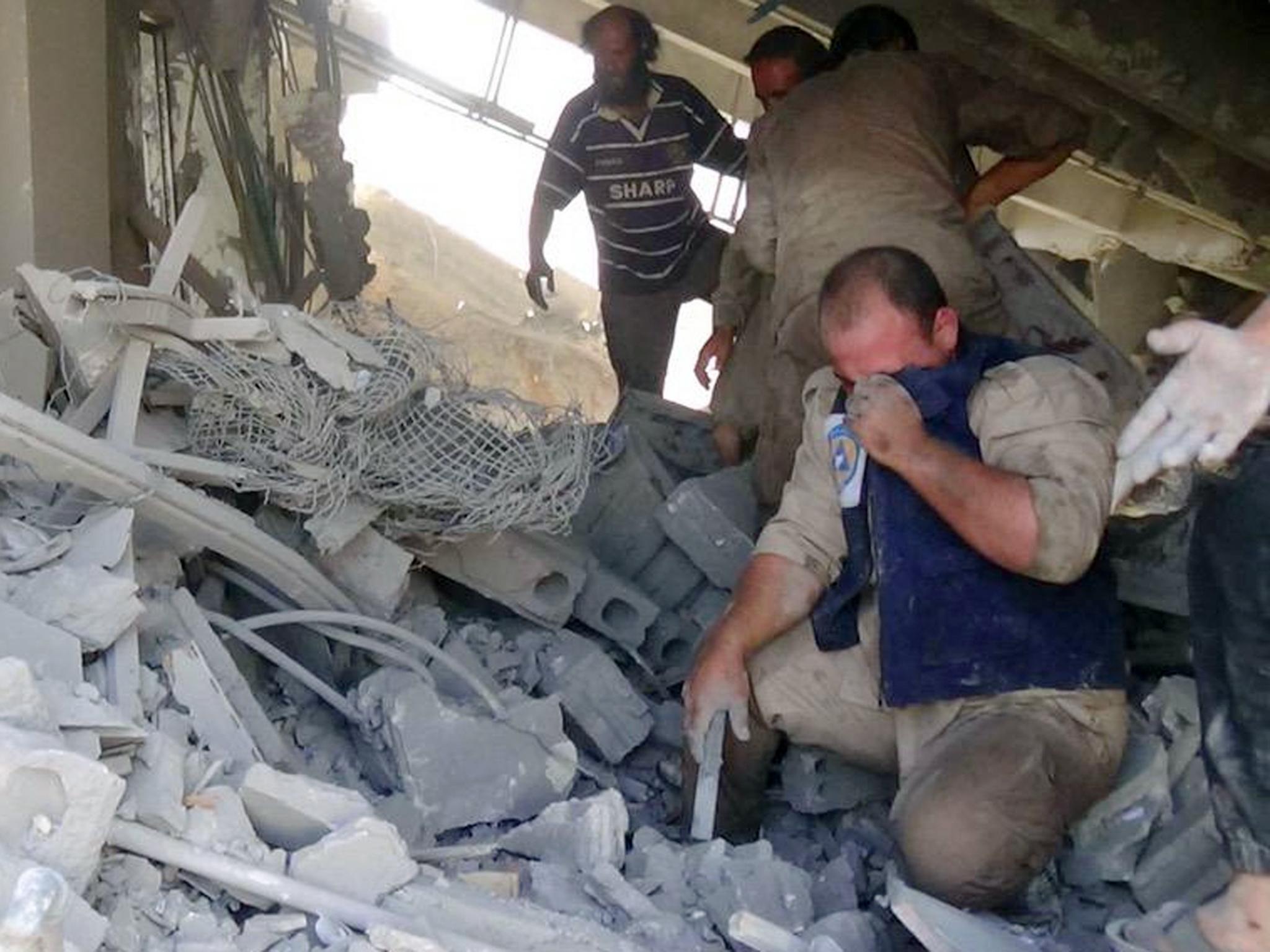Syria crisis: A guide to precisely who is fighting who
The Syria crisis involves overlapping policies, interests and religions

United States
Policy: Wants to get rid of Syrian leader President Basher Al-Assad, though recently it has talked of a transition, as opposed to an ousting. It also opposes Isis and other extremist Islamic groups.
Action on the ground: The US is flying bombing operations against Isis as part of a coalition that includes the UAE, Bahrain, Jordan, Qatar and Saudi Arabia. It has a covert programme headed by the CIA – and a a pubic one headed by the Pentagon – to train and recruit so-called moderate rebels to take on both Mr Assad and Isis. Despite hundreds of millions of dollars being spent, these rebels have proved to be largely ineffective against Isis and many rebels have switched sides and Isis has seized their equipment.
Russia
Policy: Russia has long supported Mr Assad and considers Syria its sole client state in the Middle East. It has long held a naval facility at the warm water port of Tartus. Russia wants to halt the threat of Muslim extremists, aware that several thousand Russians are estimated to have joined Isis. President Vladimir Putin is seizing on the crisis to boost his own image domestically, and promote Russia as a resurgent world power. Western confusion and hesitation on Syria has enabled this.
Action on the ground: Russia has long supplied arms to Syria, but Russian pilots carried out their first air strikes in Syria on Wednesday, dropping bombs near the central city of Homs. It has been steadily building its number of jets and personnel, most of them located at a Syrian airfield near Latakia. There are now at least 32 planes there.

Britain
Policy: Opposes Mr Assad and backs moderate elements among the rebel forces in Syria. It is opposed to Isis.
On the ground: The UK has flown air operations in Iraq as part of a coalition but strong opposition in Parliament has prevented these operations extending to Syria. The flood of Syrian refugees to Europe and the images of dead Syrian children on beaches may have altered the public mood against operations in Syria.
Iran
Policy: A strident supporter of Mr Assad and the Syrian government, which it sees as a Shia ally in a swathe of Sunni countries. It is opposed to Isis and other Sunni extremists, such as the al-Qaeda affiliate the al-Nusra Front .
On the ground: Iran has supplied both military and political support since the start of the civil war in 2011, including weapons, supplies and financial aid. The New York Times said in 2012 that Hezbollah, Iran’s Lebanese proxy, joined the fight on the government side. The next year, Iran sent hundreds of military advisers to assist Mr Assad’s army. Iranian-led militia have also been at the centre of the fight against Isis in Iraq, where they have been coordinating operations with Iraqi and US military officials.
Turkey
Policy: Another major Sunni regional player, Turkey backs the US-led coalition and rebel forces in Syria. It is opposed to Mr Assad, as well as Kurdish groups allied to the PKK.
On the ground: Turkey began air strikes in northern Iraq in the summer, against the PKK. It has allowed the US-led coalition to use Turkish air bases.

Saudi Arabia
Policy: Another major Sunni regional power, it opposes Mr Assad and Russian involvement. It is also against Isis.
On the ground: Supports a number of rebels fighting the Syrian government and is part of the US-led coalition conducting air strikes against Isis in Syria. Saudi Arabia is also flying operations against Houthi rebels in Yemen, who have allegedly been backed by Iran.
Qatar
Policy: This emerging political player opposes Mr Assad. It also opposes Isis.
On the ground: Qatar and other Gulf states opposed to the Syrian government have been funding rebel groups seeking to oust Mr Assad. Qatar has also provided weapons and training. Qatar is also home to the Al Udeid Air Base, from which the US-led air campaign against Isis is being run.
France
Policy: A former colonial ruler of Syria, France is among the Western nations opposed to Mr Assad and Isis.
On the ground: France has been supporting so-called moderate rebel forces in Syria and has been carrying out air-strikes against Isis and other extremist targets in Syria and Iraq. It has said it will not send ground troops.
Join our commenting forum
Join thought-provoking conversations, follow other Independent readers and see their replies
Comments
Bookmark popover
Removed from bookmarks